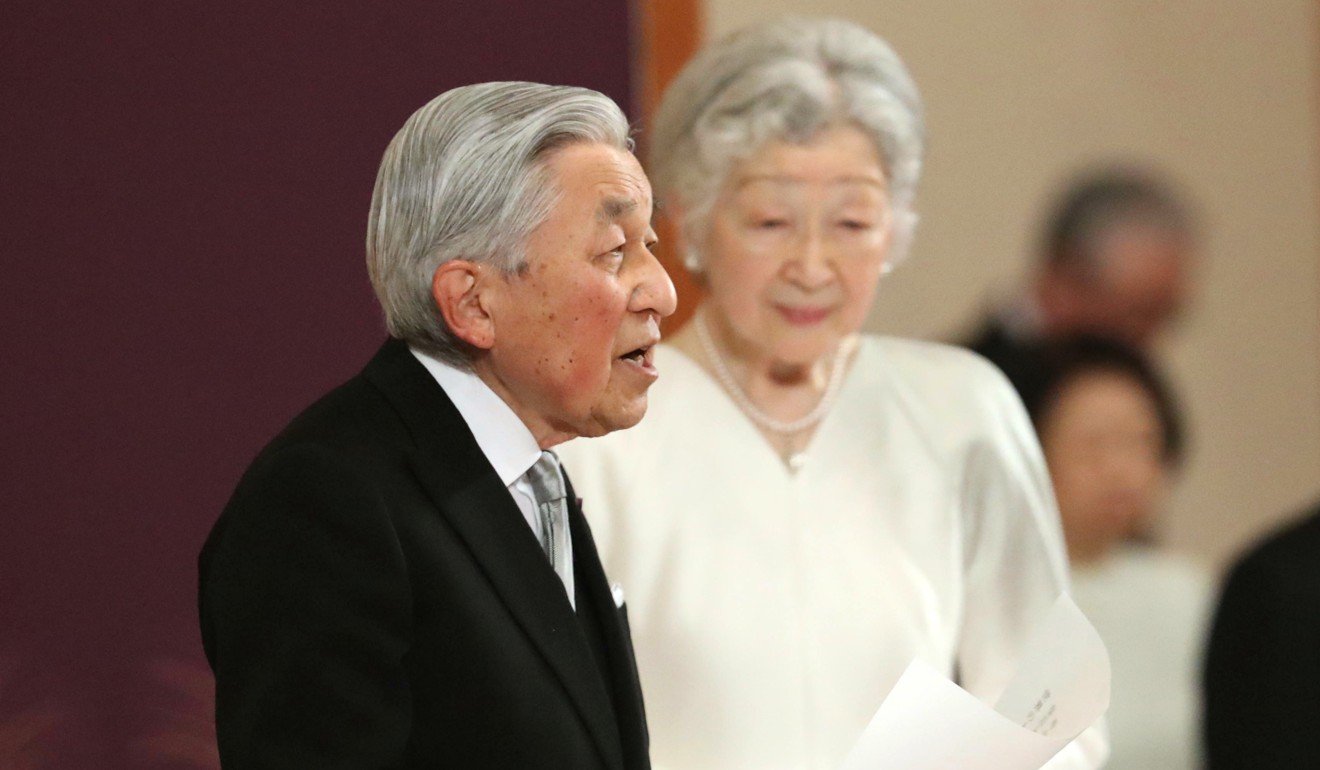
Backlash against Japan imperial family rises with Emperor Naruhito ascendancy, as protests turn deadly in Tokyo
- The succession ceremony coincided with May 1, long marked as International Workers’ Day, which brought clashes between groups opposed to the imperial family and right-wingers
- But experts say recent incidents may not represent the emergence of a larger antimonarchical ideological because the vast majority of Japanese are fond of the royals
A series of security related incidents linked to Japan’s imperial family have forced police into a state of high alert, hinting at deep-seated antipathy towards the monarchy stirred by the recent succession ceremonies.
Emperor Naruhito on Thursday replaced his father Akihito, on the Chrysanthemum Throne, marking the end of the Heisei era and dawning of the Reiwa era.
Naruhito’s ascendancy coincided with May 1, long marked as International Workers’ Day, which brought clashes between groups opposed to the imperial family and right-wingers in Tokyo. Police had to step in to keep the rival groups apart, with two people arrested.
The same day, a man was found dead at the Musashino Imperial Graveyard, on the outskirts of Tokyo. The man had apparently committed suicide by shooting himself with a crossbow close to the mausoleums for Emperor Hirohito and Emperor Yoshihito, his immediate predecessor.
One day before Emperor Akihito formally abdicated, a man walked into the school of Prince Hisahito in Tokyo and taped two knives to the 12-year-old’s desk. Hisahito, who is now second in line to the Chrysanthemum Throne, was outdoors at the time.
The man, identified as Kaoru Hasegawa, told police he acted to demonstrate his opposition to the imperial system. Authorities are now determining if he belongs to a recognised antimonarchy group or if he was acting alone.
Police were again called into action on Thursday after witnesses reported seeing drones being flown near the Imperial Palace in central Tokyo and a number of other locations linked to the royal family, including the Akasaka Estate, the present home of Emperor Naruhito.
It is illegal to fly drones in central Tokyo, in built-up areas and anywhere in Japan at night.

“The Japanese Communist Party has long proclaimed that the emperor system should be abolished and leftists are broadly opposed to having an imperial family, even if the emperor is only a figurehead without any political influence,” said Yoichi Shimada, a professor of international relations at Fukui Prefectural University.
They feel they are too peace-loving, when an emperor should have soldierly characteristics
He said there are some in Japanese society who feel they are at a disadvantage – in terms of income, education, opportunities – and see the monarchy as a symbol of hereditary oppression of the working classes.
However, there are always groups who want to protest or get involved in clashes with the police or other groups “for the fun of it”, Shimada added.
Meanwhile, there is also a faction of extreme right-wingers who have cause to be resentful of the present emperor and his recently retired father.
“There are some who are not happy at the direction the present imperial family has taken,” he said. “They feel they are too peace-loving, when an emperor should have soldierly characteristics. They believe that as well as being a symbol of the culture and heritage of Japan, the emperor should also demonstrate military strength. This emperor, they say, is too peaceful and family-oriented.”
Kyle Cleveland, a professor specialising in Japanese social issues at the Tokyo campus of Temple University, said there has long been “peripheral groups both highly in favour and deeply opposed to Japan’s imperial traditions”.
“But I’m not sure these recent incidents represent the emergence of a larger ideological faction simply because the vast majority of Japanese people feel very fondly towards their royal family,” he said.

“Japan has been a country of peace since the end of the Pacific war,” he said, and the former emperor acted as a “counterbalance” to some of the more militaristic moves of some of the nation’s governments during his 30 years on the throne.
Instead, Cleveland sees the incidents as the acts of “a few unhinged people who have been provoked by the end of a historic era and the dawning of a new one”.
Shimada agreed, pointing out that 26 shrines were burned down in incidents that conservatives attributed to “domestic terrorists” when Emperor Akihito assumed the throne after the death of his father, Emperor Hirohito, in 1989.

